What if we looked back at the 15 best science fiction films of the 1980s? A very prolific decade in the genre. So much so that it was difficult to select only 15. Sorry for fans of Dune, Star Trek, Superman or even Escape from New York, but we had to make choices…
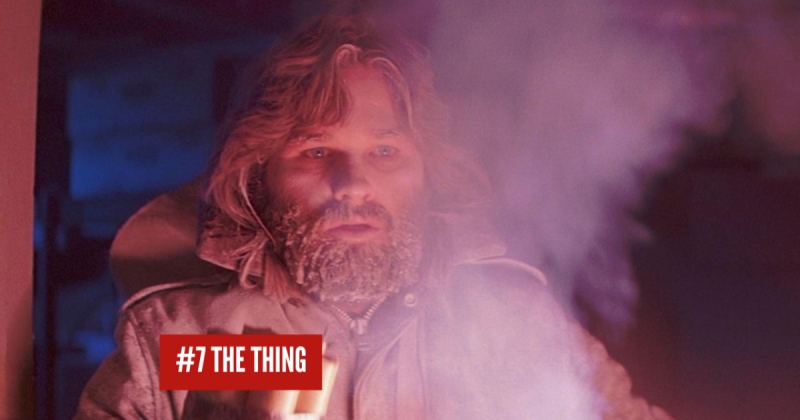
15) Back to the Future (1985)
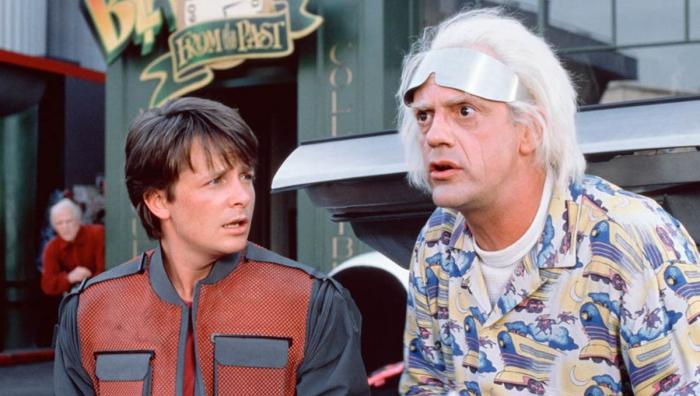
We can see you coming. Why is Back to the Future ranked so low? Probably because it's the least ambitious film on this list. Released in 1985, directed by Robert Zemeckis, led by Michael J Fox and Christopher Lloyd, Back to the Futureis an absolute reference of the genre. A family comedy with a science fiction background, Back to the Future popularized time travel (in the good sense of the term). An extremely popular film, it has become a true classic of contemporary pop culture. Skillfully playing with time travel to make it a comic springboard, Robert Zemeckis has above all created a unique and totally iconic duo!
14) Ghostbusters (1984)
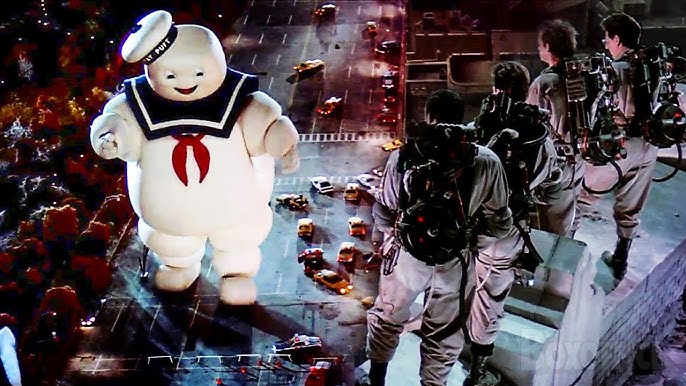
We stay in popular comedies with S.O.S. Ghosts. Realized by Ivan Reitman, S.O.S. Ghostsgave birth to a cult saga. A family comedy led by a crazy cast, Ghostbusters had the intelligence to play on several tables: science fiction, comedy and a cloud of horror. An explosive cocktail that still works perfectly 40 years later. It's hard not to get attached to this dysfunctional team. In fact, Ghostbusterssomewhat invented the modern blockbuster in its way of creating breaks in tone. And then, it’s hard to forget the soundtrack!
13) E.T. 4000g8vcmnfep.20.webp” type=”image/webp”>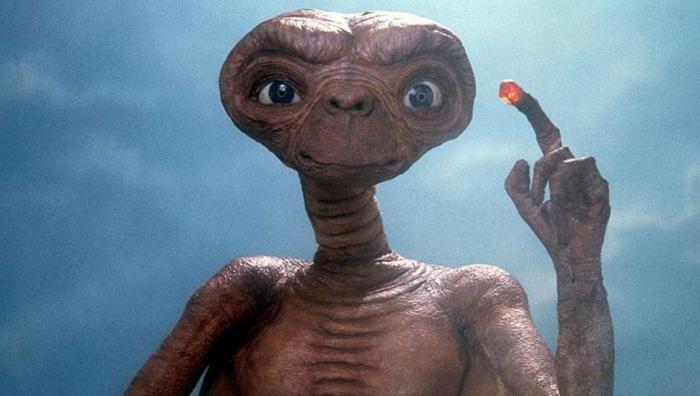
It is one of Steven Spielberg's masterpieces. Unifying work, E.T. is obviously cult. Steven Spielberg readapts the myth of the extraterrestrial to make a family film with very strong themes of respect and acceptance. Once again, Spielberg places his plot at the center of the family cocoon. He once again takes a little boy as a hero, and confronts him with the outside, with the other, with the unknown. Eliott's empathy, the sensitivity of the story, the impossible friendship between the two protagonists; so many elements that make E.T. The Extra-Terrestrial simply one of the best children's films of all time! But in truth we all know that E.T. is actually a Jedi…
12) Tron (1982)
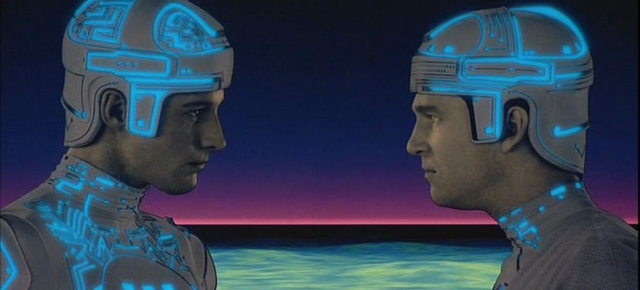
A huge science fiction classic, Tron was above all an unprecedented technological advance. Directed by Steven Lisberger, Tron is a pioneer in the use of special effects in cinema. Steven Lisberger was actually the first to extensively use CGI (computer-generated imagery). At the time, digital animation was in its infancy, and Tronpushed the boundaries of what could be done in the early 1980s. While it may have aged a bit today, it is an invaluable work for the technological advancement of the seventh art.
11) Robocop (1987)
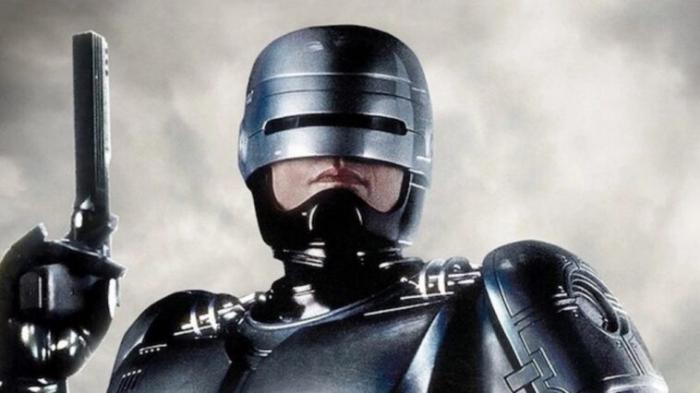
Paul Verhoeven was an important author of American science fiction. Total Recall (1990), Starship Troopers (1997) and Robocop are therefore emblematic works of modern science fiction in cinema. Social satire, anti-militarization film, reflection on technology, Robocopis a pioneering work that takes a scathing look at an ultra-secure society. In a world marked by unbridled capitalism, the privatization of public services, a desensitization to violence, and the rise of political extremism and big business, Robocop has perhaps never been so rooted in reality. In addition to its still very current social and political satire, Paul Verhoeven's film is also a visually striking proposition. The special effects and the use of stop-motion still shine on the screen almost 40 years later. And it's hard to forget the iconic design of this half-man, half-machine cop!
10) Metal Hurlant (1981)
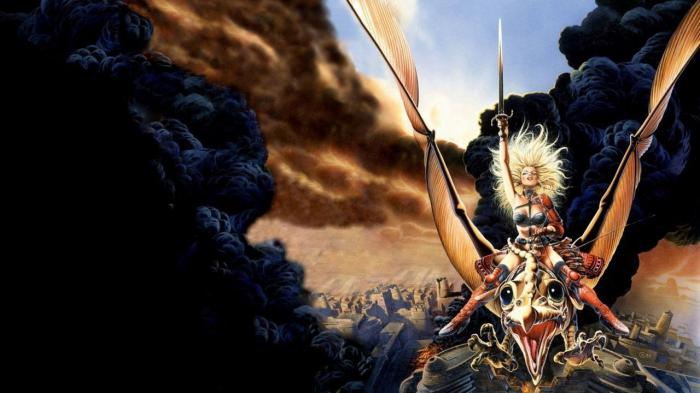
We needed a little animated film to brighten up this list. Based on the eponymous French comic book magazine, Metal Hurlant has had a notable influence on modern science fiction and animation. Metal Hurlant is one of the first animated films for adults in history. The feature film addresses much more mature themes such as violence, sexuality, politics, in a dystopian environment like Mad Max. Aesthetically it is superb, almost psychedelic at times, influenced by cult artists such as Moebius and Philippe Druillet. Each of the film's short stories, linked by a common theme, is animated in a different style, which reinforces the unique and experimental aspect of the work.
9) Brazil (1985)
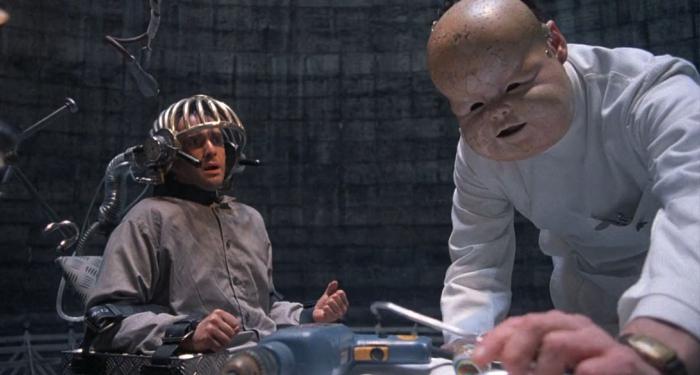
It's hard to talk about science fiction without mentioning the brilliant and unique mind of Terry Gilliam. Whether it's with Monty Python, in 12 Monkeys (1995) or more recently in The Zero Theorem (2013), Terry Gilliam is no stranger to science fiction. But Brazilis arguably his most iconic work. A dystopian satire that is imminently political, Brazil is an edifying social commentary on the alienation of a society by work and uniformity. Often compared to 1984, and rightly so, Brazilpaints a portrait of a liberticidal, dehumanized society, destroyed by bureaucracy, totalitarianism and new technologies. Often disturbing, very dark, Brazil is carried by the wacky, unhinged, retro-futuristic and totally WTF aesthetic of its author. A disturbing, exciting film, which sometimes makes you feel uneasy. comfortable, it is a monument of contemporary science fiction.
8) Abyss (1989)
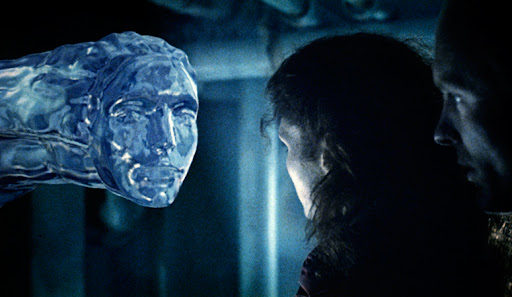
James Cameron is also a pillar of 1980s science fiction. Led by Ed Harris and Mary Elizabeth Mastrantonio, Abyssis a unique work of science fiction because it places its story underwater. As is often the case with James Cameron, Abyss is marked by the technological advances implemented by its author. The special effects and CGI gain in clarity and realism, so much so that the “water column” of the film is one of the first notable uses of CGI on aquatic movements, so difficult to recreate. Unfortunately, as is often the case with James Cameron, the latter set up an anxiety-inducing shoot, whose ultimate goal was to surpass oneself for the benefit of art, regardless of the poor conditions, emotional pressures and especially the physical dangers incurred. After Abyss,Ed Harris and Mary Elizabeth Mastrantonio have decided that they will never work with Cameron again. Nice atmosphere. Nevertheless, Abyss is a bit like 2001 underwater as the director sets up a science fiction story that is exciting, introspective and visually stunning…
7) The Thing (1982)
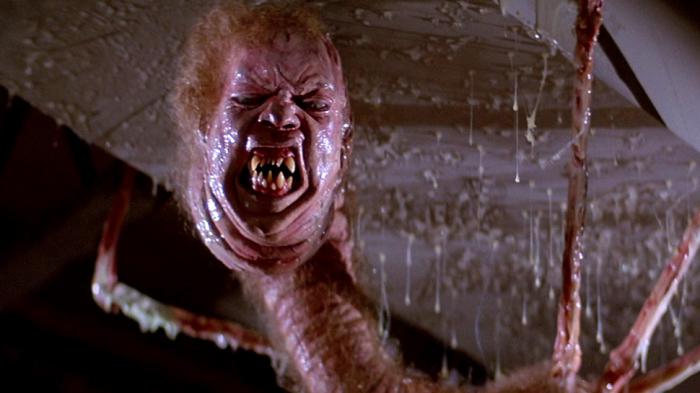
Directed by John Carpenter, The Thing is a monument of horror cinema. Anxiety-inducing closed-door drama in the bitter cold of Antarctica, The Thing is a chilling, terrifying but also exciting work, where danger can emerge from any corner. Rob Bottin's special effectsare among the most striking of 1980s cinema. An impressive aesthetic that uses stop motion with crazy intelligence. The costumes, puppets, practical effects are among the most successful of this era. Above all, the omnipresent paranoia makes The Thing a uniquely tense film, accentuated by the brilliant music and Ennio Morricone.
6) Predator (1987)
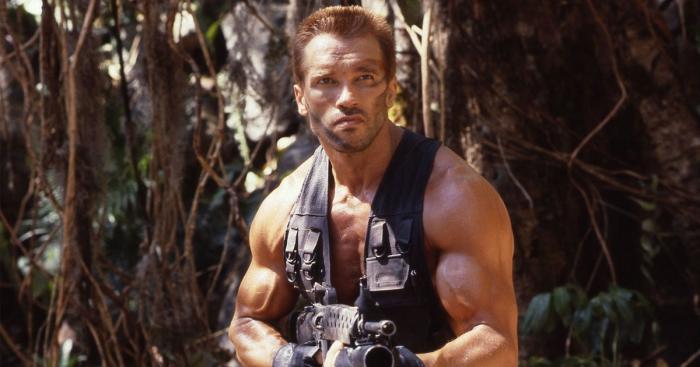
After Alien, the Predators have also become icons of modern science fiction. Directed by John McTiernan, Predator brilliantly mixes action, science fiction and horror. Obviously, the film owes a lot to its creature, which has become a cult monster in the history of cinema. And then, we can also count on the muscular presence of Arnold Schwarzenegger. Above all, McTiernan skillfully plays with suggestion, with off-screen, to create an oppressive atmosphere at all times.
5) Akira (1988)
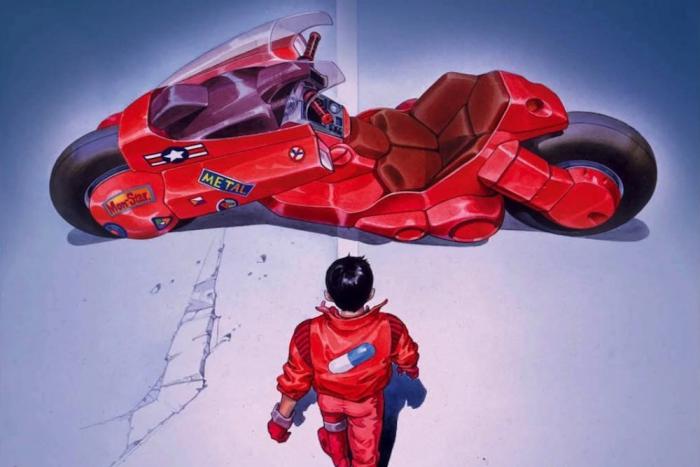
It is simply one of the most important animated films in the history of cinema. Especially in the Japanese anime genre. Its cyberpunk and dystopian approach makes it a work that is timeless, but also ahead of its time. Cold, terrible, with no escape, Akira depicts an unattractive future, which also owes a lot to Blade Runner. Akira is a film of capital importancefor his contributions to animation, his mature and complex themes, and his impact on world culture. He not only influenced the aesthetics of the cyberpunk genre and science fiction, but also contributed to a growing recognition of Japanese animation as a cinematic art in its own right.
4) The Empire Strikes Back (1980)
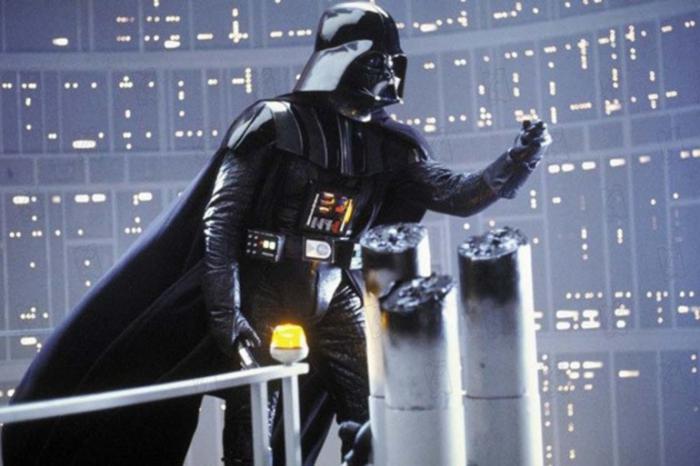
Even today, Irvin Kershner's film is considered the best Star Wars of the entire license. It must be said that as a unique work, Star Wars V is an exciting proposition, as dramatic as possible, in which the bad guys win against the good guys. Here, no moral, no happy ending, but 2 hours of pure nihilism in which Darth Vader becomes an iconic figure of the seventh art. The feature film addresses profound themes that stage the dichotomy of good and evil. The film intelligently expresses a Manichean conflict between two powers that complement each other : the light side and the dark side of the Force. Fascinating!
3) Aliens, the return (1986)
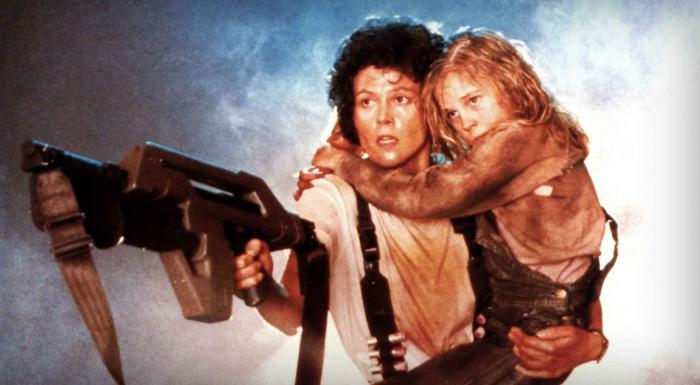
How can you do better than Alien (1979)? By doing it differently. James Cameron decides to take a completely different approach for this sequel. He leaves behind pure horror, and the desire to play on suggestion to take his viewers into a pure action film. The director multiplies the xenomorphs,and offers a whole look at the hyper-militarization of the United States. A brutal film, Aliens nevertheless advanced the Alien mythology enormously, and remains pure entertainment from the 1980s.
2) Terminator (1984)
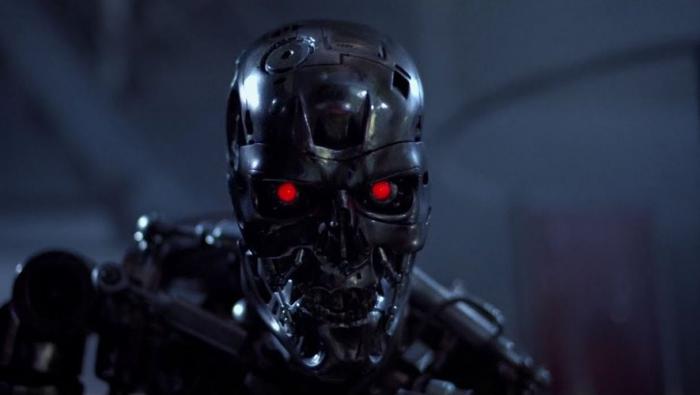
James Cameron has definitely left his mark on the 1980s. Third citation for the Canadian director after Abyss and Aliens. With Terminator,he signs a monument of modern science fiction. Even today, the feature film resonates in people's minds, and its themes on artificial intelligence have never been so topical. Schwarzenegger is still as irreproachable, and the mythology proposed by James Cameron is timeless. A pioneer of pop culture.
1) Blade Runner (1982)
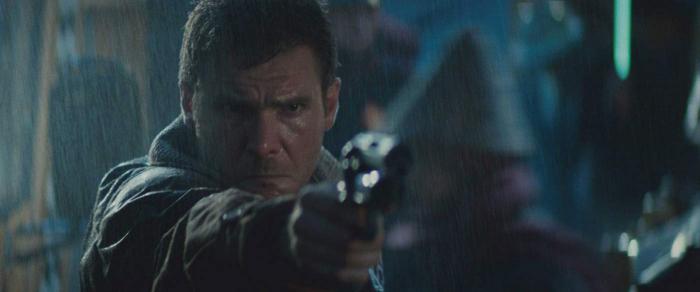
Arguably one of the greatest (if not THE greatest) sci-fi movies of all time. After turning Hollywood upside down with Alien, Ridley Scott is back with another sci-fi masterpiece: Blade Runner. The director mixes detective stories, film noir, thrillers, cyberpunk science fiction, and romance with disconcerting ease. A pioneer in the cyberpunk genre, Blade Runner has influenced all modern science fiction, from Ghost in the Shell to The Fifth Element. The film also addresses philosophical and ethical themes on transhumanism, the notion of life, death, AI, robotics, identity, and even love. Its visual and narrative influence has left its mark on generations of creators, and it continues to be relevant today because of its concerns with ecology and technological progress. And how can we forget the melancholic and atmospheric soundtrack by Vangelis.

